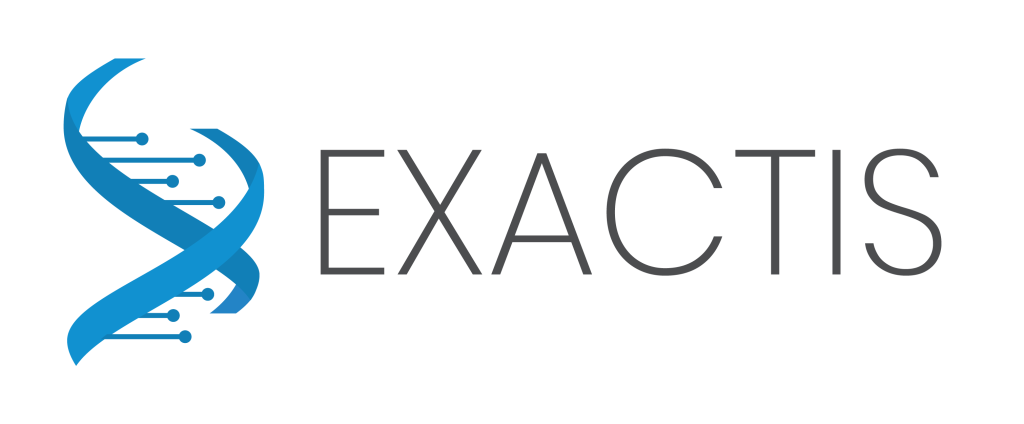NEWS > From the lab to the front lines of RWE research
26 March 2024
From the lab to the front lines of RWE research
MEET ADRIANA ORIMOTO, PMT COORDINATOR AT THE CENTRE HOSPITALIER DE L’UNIVERSITÉ DE MONTREAL (CHUM)
 Adriana Orimoto discovered her passion for research in her home country of Brazil, where she obtained her bachelor’s degree in biology, followed by an M.Sc. focusing on molecular biology and cancer genetics. Adriana then came to Canada, where she eventually left the research lab to join us at Exactis as a PMT Coordinator, where she and her team enroll 400-500 PMT participants annually for our PMT Databank.
Adriana Orimoto discovered her passion for research in her home country of Brazil, where she obtained her bachelor’s degree in biology, followed by an M.Sc. focusing on molecular biology and cancer genetics. Adriana then came to Canada, where she eventually left the research lab to join us at Exactis as a PMT Coordinator, where she and her team enroll 400-500 PMT participants annually for our PMT Databank.
In 2015, Adriana joined Dr. Anne-Marie Mes-Masson’s team at the Institute du Cancer de Montréal (ICM) at the Centre de Recherche du Centre Hospitalier de l’Université de Montréal (CRCHUM). During that time, she focused on wet laboratory work, but progressively transitioned to more translation research projects that allowed her to become familiar with clinical research. In particular, she has worked on several oncology projects, two of them directly involving personalized medicine. Adriana discovered she had a passion for research that focused on the cancer patient.
In 2020, Dr. Mes-Masson asked her to assume the position of Principal Coordinator for PMT activities at the CRCHUM. Adriana saw this opportunity as a personal challenge that directly aligned with her desire to contribute to the advancement of personalized medicine for oncology patients. Over the last two years, there has been an increasing emphasis on the use Real World Evidence (RWE) to guide policymakers and clinicians in decision-making.
“Looking towards the future, I truly believe that using Real World Evidence (RWE) studies will guide improvements that can positively impact patient’s lives. Each patient who benefits from our research is a victory for the community. Mitigating the impact of cancer on patients’ lives is what motivates me to work.” says Adriana.
What are the main responsibilities of a PMT Coordinator?
My responsibilities as Main Coordinator for the PMT project at the CRCHUM are:
- General coordination of activities related to the PMT project at the CHUM, including the supervision of PMT staff activities in our site.
- Establishing and maintaining a close collaboration with members who work in different biobanks of CRCHUM to promote efficiencies.
- Screening potential participants for the PMT study that correspond to specific inclusion criteria.
- Organizing and supervising patient recruitment activities in oncology across multiple cancer types (ovarian, breast, colorectal, endometrial, prostate, melanoma and others) for the PMT project.
- Liaising and acting as a source of information for patients, healthcare professionals, tissue biobank and PMT staff that are related to the PMT project activities.
- Ensuring quality control of the collection and recording of clinical data from participants on the PMT-PR Portal.
- Responding to Research Ethics Board (REB)-CHUM’s queries together with Exactis Innovation so that the project meets the institution’s requirements, respecting ethical parameters and protecting the participant’s private life.
- Ensuring that regulatory documentation is complete and up to date. Organizing and responding to project monitoring activities at the CRCHUM site.
- Acting as the contact point and maintaining open communication between Exactis Innovation and CRCHUM PMT staff and local collaborators.
- Responding to Exactis Innovation requests, including those that involve RWE studies.
- To be available to my team!
How does your work as a PMT Coordinator differ from your past work in research?
For many years I worked as a research assistant on projects that involved laboratory bench work that includes being the mind and hands that carry out biochemical, molecular and cell-based experimentation. I was especially happy to be challenged in using or developing new devices, tools and techniques used in cancer studies.
My current work does not involve wet laboratory methods. The present working is more focused on management, collaboration, partnership and network development, as well as information technologies.
You oversee 3 other PMT coordinators at the CHUM. How does working with a team affect your work recruiting patients?
Working as a TEAM means a lot to me! We all come from different backgrounds and it is very useful to take advantage of this diversity. The success of our approach speaks for itself: we enroll 400-500 PMT participants/year at the CRCHUM and this is only possible because we work effectively as a team. In addition, we have the colossal task over reviewing more than 3,000 participants annually, ensuring that medical review and data entry are well coordinated and executed by the PMT-CRCHUM staff. The entire team derives satisfaction from knowing that our work might directly impact the cancer patient’s trajectory.
What types of questions do patients have when enrolling in PMT?
- Patients have many concerns about the impact of a molecular profiling result on insurance polices, and want to better understand the benefit versus risk in this type of research, both for themselves and for their family members.
- Patients want to be reassured that their personal data is well protected.
- Patients often question the need of extra biological samples, and there is sometimes a reticence to provide these.
- Patients often wish to give us the access to their medical file but they wonder how being recontacted may impact them personally on their cancer journey and for various reasons some are reluctant to provide approval to be solicited for additional studies.
What do you like most about working as a PMT Coordinator?
I love working in a team, collaborating, and overcoming new challenges. I also have a strong feeling of gratitude for having the opportunity to contribute positively to patients’ lives.
I am pleased to be integrated into Dr Anne-Marie Mes-Masson and Dr Fred Saad’s research teams. Their dedication and contribution to cancer research is of the highest level, and I am proud to be part of the team that has contributed so much to the science of cancer research. The success of the PMT project at CRCHUM is due to the exceptional work and vision of these researchers.
Finally, the PMT results in our site are a portrait of the commitment of our staff at the CRCHUM. Special thanks to Chantale Auger, Nathalie Delvoye, Manon de Ladurantaye and Claudia Syed!
